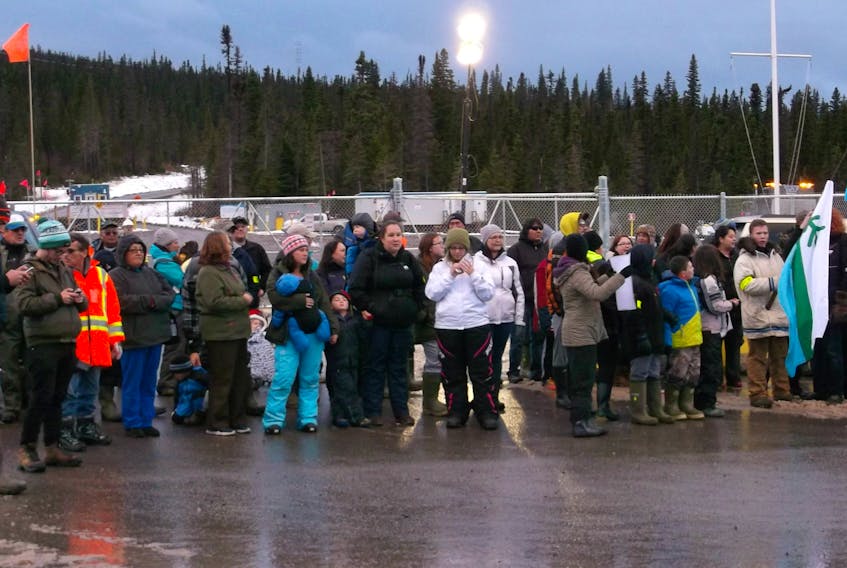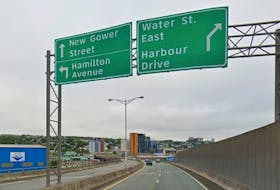Watching the scene unfold in Nova Scotia on Oct. 13 was shocking. Not just the 200 or so people who surrounded and damaged a lobster pound in in New Edinburgh, terrorizing the Indigenous fishermen inside, or the van that was set on fire that same night in another location with more Indigenous people threatened.
What was shocking was the police and government response to the unrest, or lack thereof.
A small number of RCMP officers showed up to the protests where they were majorly outnumbered. The RCMP told the Chronicle Herald on Oct. 15 their priority “quickly became the preservation of life” and said in a statement they are investigating “mischief and threats related to the disturbance.”
There was no violence or substantial property damage during the protest. About 50 people, mostly Indigenous, were arrested and charged with violating an injunction to not protest on the site — with some of those charges still in the courts. Police response to protests at the Muskrat Falls site cost the government more than $750,000 by the time it was all said and done.
This is in stark contrast to the police response in Labrador to protect the assets of the Muskrat Falls hydroelectric development a few years ago. A large number of police officers were called in by the provincial government when peaceful Indigenous protesters rallied at the gates for weeks in 2016, with a group of them occupying the site for a time.
The police showed up in full force then, with tactical units and officers wearing head-to-toe camouflage, to respond to a camp full of people worried their water supply. Protesters were concerned the water and their food supply would be poisoned by the methylmercury formed from vegetation rotting underwater in the flooded reservoir.
There was no violence or substantial property damage during the protest. About 50 people, mostly Indigenous, were arrested and charged with violating an injunction to not protest on the site — with some of those charges still in the courts. Police response to protests at the Muskrat Falls site cost the government more than $750,000 by the time it was all said and done.
The next summer, when some industrial transformers for the project were being moved on the highway in Labrador, dozens of police were called in to protect the assets against protests that didn’t happen. Police and government refused to say how many officers were called in. According to a CBC article from the time, the operation cost the provincial government an estimated $10 million.
Meanwhile, numerous federal and provincial politicians have decried the tensions over the lobster fishery in Nova Scotia, calling for more to be done. Why hasn’t it been? Police say they don’t believe the underlying issue in the protests to be a police matter. People breaking the law certainly is though.
It’s strange to watch organized groups commit substantive crimes against Indigenous people and flaunt it on social media, and face little to no repercussions.
In the case of Muskrat Falls, the Newfoundland and Labrador government asked the RCMP to come in to protect the site, which is an important government resource owned by a Crown corporation. There has been no such call by the government of Nova Scotia to protect the property and livelihood of the Mi'kmaq fishers in what appears to be an escalating situation.
Sipekne’katik First Nation chief Michael Sack has asked for more police and the military to be brought in, appealing to Prime Minister Justin Trudeau directly to address what he is calling systemic racism.
Sack has been blunt in his opinion of the police response. He says the “wilful inaction” of police is unacceptable and he’s worried his people are going to get hurt or possibly killed.
These are very different police and government responses to protest movements. One, which was Indigenous-led, peaceful and didn’t cause any damage, brought possibly hundreds of police officers and dozens of arrests to protect an industrial site.
The other, against Indigenous people, has brought a small-scale police response to date, a handful of arrests and virtually no consequences.
It’s hard to look at these two examples and not agree with Sack, there’s a problem in the system. Does the system see more value in a hydroelectric dam than it does in the safety of Indigenous people?
The state has a responsibility to protect all its citizens. It isn’t about the fishery rights or commercial fishers; it’s about doing what’s right.
What’s happening in Nova Scotia isn’t right.
Evan Careen is a reporter covering Labrador affairs for SaltWire Network.









